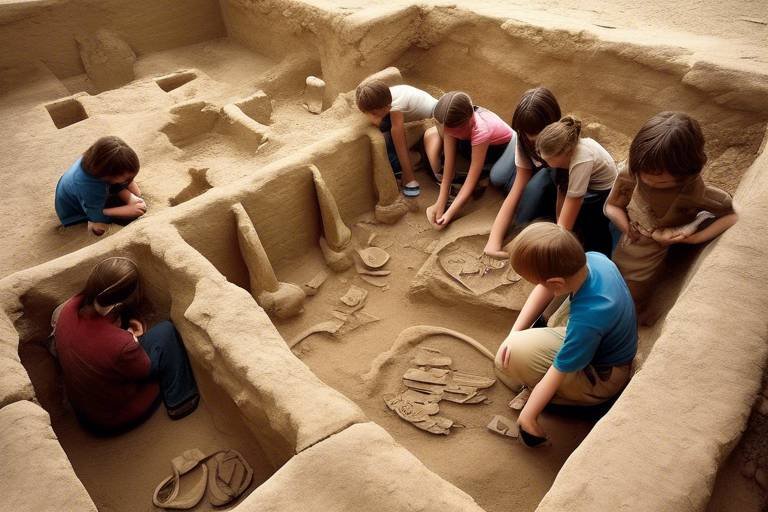The Influence of Ancient Greek Theatre on Modern Drama
Ancient Greek theatre stands as a towering pillar in the history of drama, casting a long shadow that continues to influence modern theatrical productions. The roots of contemporary drama can be traced back to the ancient Greek stage, where innovative storytelling techniques and profound themes were first explored.
The legacy of ancient Greek tragedy is particularly evident in modern drama, with its exploration of human suffering, fatal flaws, and the concept of catharsis. The use of a chorus to provide commentary and context, as well as the depiction of tragic heroes facing their downfall due to hubris, resonate in tragic plays today.
On the lighter side, ancient Greek comedy laid the foundation for modern comedic styles through its use of satire, farce, and mistaken identities. The comedic devices and structures developed in ancient times have evolved into the comedic conventions we see in contemporary plays and films.
One of the most iconic elements of ancient Greek theatre is the theatrical masks, which were used to amplify emotions and distinguish characters. These masks, along with the chorus, played a crucial role in character portrayal and engaging the audience, a practice that has left a lasting impact on modern theatrical performances.
The dramatic structure of ancient Greek plays, with its exposition, rising action, climax, and resolution, has set the stage for modern storytelling techniques. The three-act structure, in particular, continues to be a fundamental framework for crafting compelling narratives that captivate audiences.
Ancient Greek theatre also introduced archetypal characters like the tragic hero, the comic buffoon, and the wise mentor, whose essence can still be found in contemporary plays and films. These timeless character types add depth and complexity to modern storytelling, resonating with audiences across generations.
Themes of fate, hubris, justice, and morality explored in ancient Greek theatre continue to be relevant in modern drama and literature. The ethical dilemmas and philosophical questions raised by ancient playwrights still echo in contemporary works, inviting audiences to ponder the complexities of human nature.
Furthermore, the innovative staging techniques pioneered in ancient Greek theatre, such as the skene and theatron, have left a lasting impact on modern stage design and performance practices. The elaborate sets and immersive environments created by ancient Greek stagecraft have inspired new generations of theatre artists to push the boundaries of creativity.
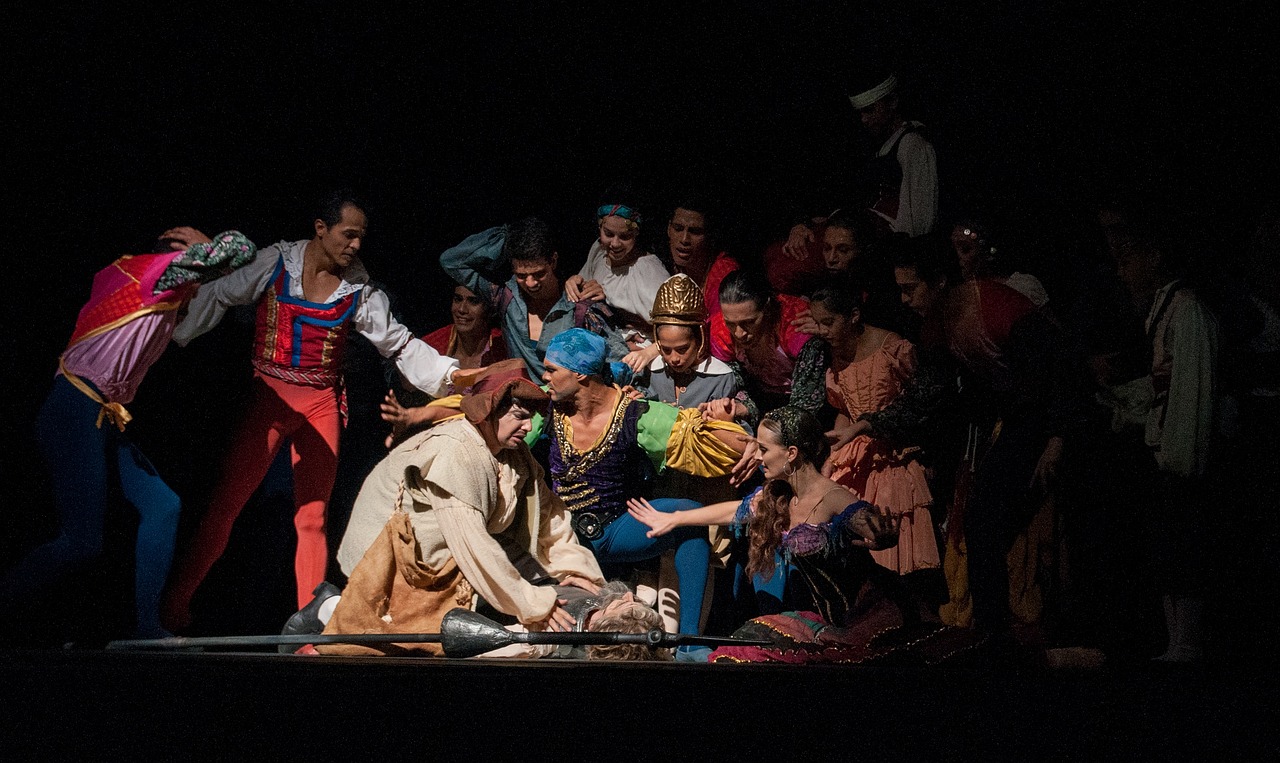
Ancient Greek Tragedy
Ancient Greek Tragedy holds a significant place in the history of theatre, laying the foundation for the development of tragic plays that continue to captivate audiences to this day. Originating in ancient Greece, this dramatic form encompassed themes of human suffering, fate, and moral dilemmas, exploring the complexities of the human experience through storytelling.
The essence of Ancient Greek Tragedy can be traced back to the use of the chorus, a group of performers who provided commentary, context, and emotional depth to the unfolding narrative. This communal voice not only connected the audience to the events on stage but also served as a reflection of societal values and beliefs.
Tragic flaws, known as "hamartia," played a crucial role in shaping the characters in these plays, often leading to their downfall. These flaws, whether hubris, greed, or pride, added layers of complexity to the protagonists, making their inevitable tragedies all the more poignant and relatable.
Catharsis, the emotional release experienced by the audience through witnessing the protagonist's downfall, was a central aspect of Ancient Greek Tragedy. By evoking feelings of pity and fear, these plays aimed to purify and cleanse the viewers, offering a transformative experience that lingered long after the final curtain fell.
The enduring influence of Ancient Greek Tragedy can be seen in modern theatrical productions, where themes of tragedy, flawed characters, and emotional catharsis continue to resonate with audiences worldwide. From Shakespearean tragedies to contemporary plays, the legacy of Ancient Greek Tragedy lives on, reminding us of the timeless power of storytelling and the exploration of the human condition.
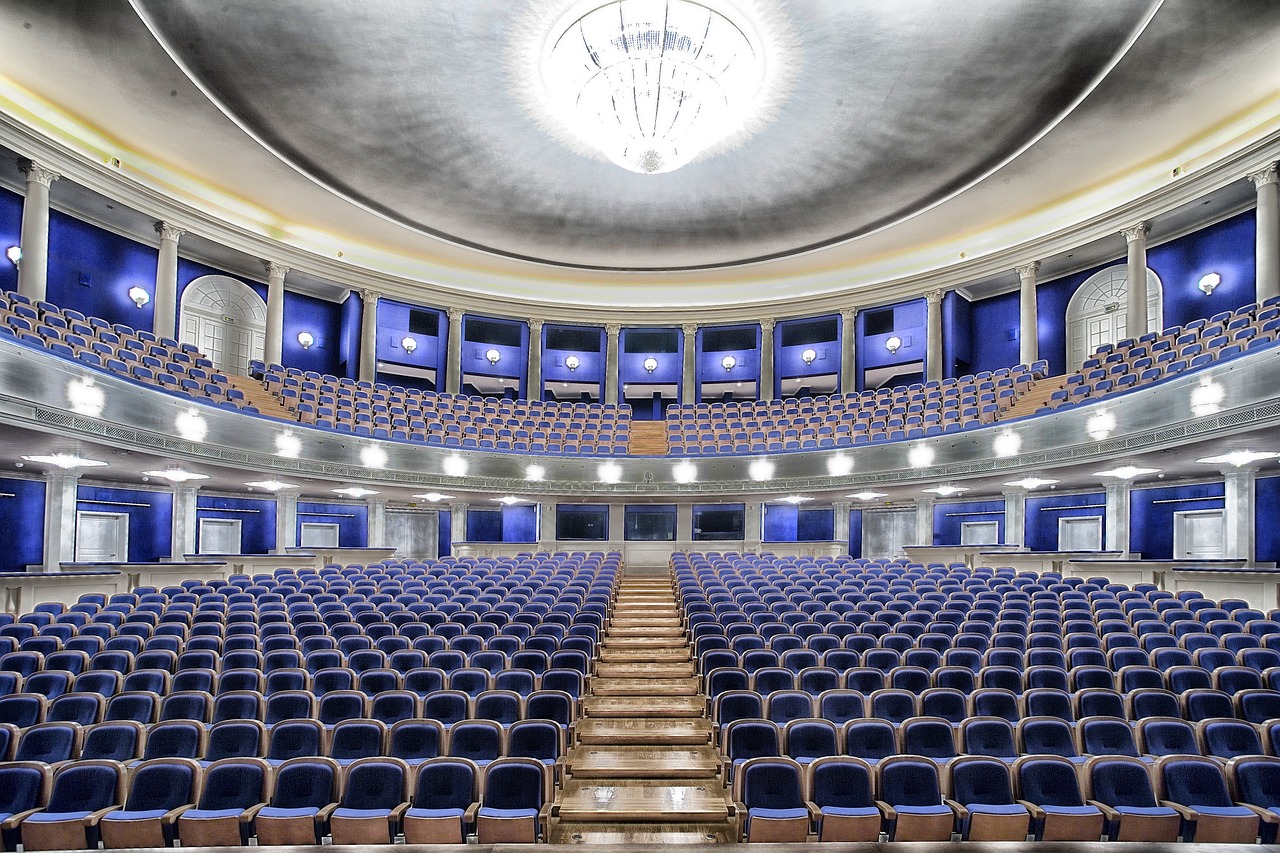
Ancient Greek Comedy
Ancient Greek comedy, a genre that emerged alongside tragedy, played a crucial role in the development of theatrical performance. Unlike the somber and introspective nature of tragedy, comedy focused on humor, satire, and everyday life. Comedic plays often mocked societal norms, political figures, and common stereotypes, providing audiences with a light-hearted and entertaining experience. The structure of ancient Greek comedy typically involved exaggerated characters, witty dialogue, and absurd situations that aimed to amuse and provoke thought simultaneously.
One of the key elements of ancient Greek comedy was the extensive use of satire, a form of humor that ridiculed human vices, societal conventions, and political institutions. Through satire, playwrights were able to critique the flaws of their society in a humorous and engaging manner, inviting the audience to reflect on the absurdities of the world around them. Additionally, comedy frequently employed farce, a comedic style characterized by exaggerated physical humor, mistaken identities, and chaotic situations that elicited laughter and amusement from the viewers.
Mistaken identity was another common comedic device used in ancient Greek plays, adding complexity and humor to the narrative. Characters often found themselves in absurd predicaments due to misunderstandings or false assumptions, leading to comedic misunderstandings and humorous resolutions. This element of surprise and confusion added depth to the storytelling, keeping the audience engaged and entertained throughout the performance.
Moreover, ancient Greek comedy often featured stock characters, including the clever slave, the pompous aristocrat, and the bumbling fool, each representing different facets of society and providing a source of comedic conflict and contrast. These archetypal characters served as the foundation for modern comedic tropes and stereotypes, influencing the development of comedic storytelling in literature, theater, and film.

Theatrical Masks and Chorus
Exploring the enduring impact of ancient Greek theatre on contemporary drama, analyzing themes, storytelling techniques, and character development that have transcended time and continue to shape modern theatrical productions.
Ancient Greek theatre was not just about actors reciting lines; it was a spectacle that involved elaborate masks and a chorus. The theatrical masks served a dual purpose - they not only helped actors portray different characters but also allowed for exaggerated facial expressions that could be seen by the audience even from a distance. These masks were crucial in enhancing the emotional depth of the characters and bringing them to life on stage.
The chorus in ancient Greek theatre was a unique element that added a communal voice to the performance. Comprising of a group of performers who sang, danced, and provided commentary on the unfolding events, the chorus served as a bridge between the audience and the characters. They helped set the mood, offer insights into the characters' motivations, and even interacted with the spectators, engaging them in the theatrical experience.
Furthermore, the use of masks and the chorus in ancient Greek theatre not only added layers of complexity to the storytelling but also influenced the way characters were portrayed and themes were conveyed. These elements have left a lasting legacy on modern theatre, with contemporary productions often drawing inspiration from the dramatic impact created by masks and the dynamic presence of a chorus.
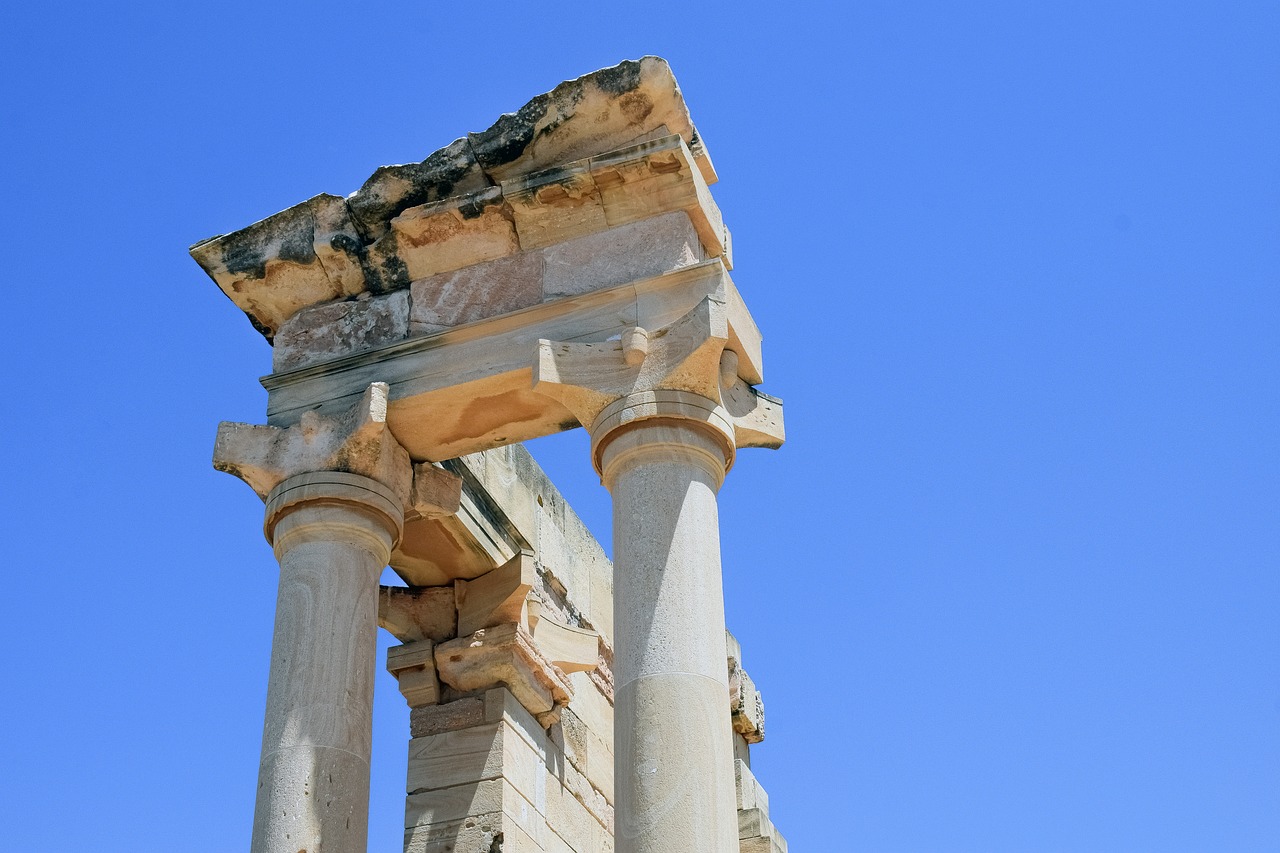
Dramatic Structure and Storytelling
Exploring the enduring impact of ancient Greek theatre on contemporary drama, analyzing themes, storytelling techniques, and character development that have transcended time and continue to shape modern theatrical productions.
Examining the origins and characteristics of ancient Greek tragedy, including the use of chorus, tragic flaws, and catharsis, and how these elements have influenced modern tragic plays.
Investigating the structure and comedic devices used in ancient Greek comedy, such as satire, farce, and mistaken identity, and their evolution into modern comedic styles and conventions.
Exploring the significance of masks in ancient Greek theatre for character portrayal and emotional expression, as well as the role of the chorus in conveying themes and interacting with the audience.
Analyzing the use of dramatic structure in ancient Greek plays, including the three-act structure, exposition, rising action, climax, and resolution, and how these elements have influenced modern storytelling techniques.
Examining the archetypal characters found in ancient Greek theatre, such as the tragic hero, the comic buffoon, and the wise mentor, and their presence in contemporary plays and films.
Discussing the recurring themes of fate, hubris, justice, and morality in ancient Greek theatre, and how these ethical dilemmas continue to be explored in modern drama and literature.
Exploring the innovative staging techniques used in ancient Greek theatre, such as the use of the skene and the theatron, and how these have influenced modern stage design and performance practices.
Coming soon...
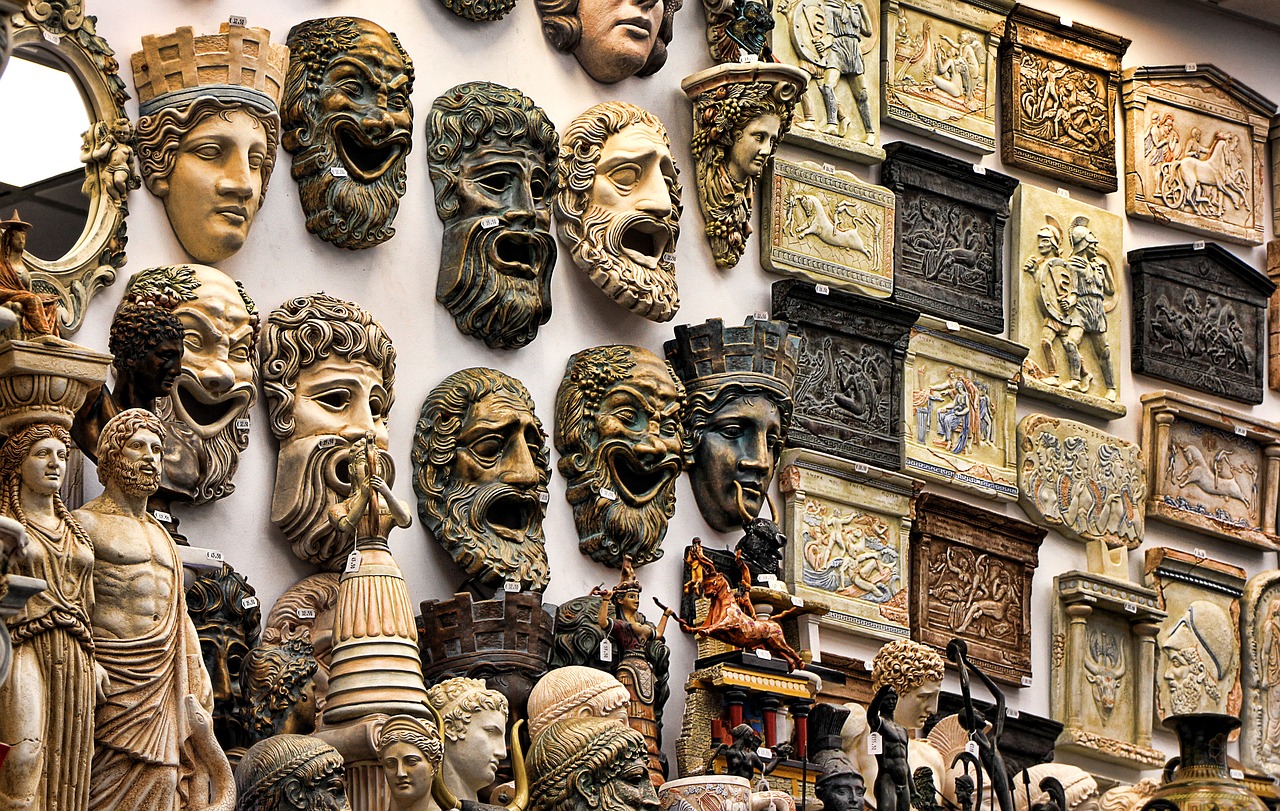
Character Archetypes
Character archetypes in ancient Greek theatre played a pivotal role in shaping the foundation of modern character portrayals in drama. These archetypes, such as the tragic hero, the comic buffoon, and the wise mentor, served as templates for character development that have transcended time and continue to influence contemporary plays and films. The tragic hero, with their fatal flaw leading to downfall, can be seen in characters like Hamlet or Macbeth, showcasing the enduring impact of Greek tragedy on modern storytelling. On the other hand, the comic buffoon, known for their humorous antics and light-heartedness, can be likened to characters in modern sitcoms or comedic plays, bringing levity and entertainment to audiences. Additionally, the wise mentor archetype, offering guidance and wisdom to the protagonist, echoes in characters like Dumbledore from Harry Potter or Gandalf from The Lord of the Rings, emphasizing the timeless nature of these character archetypes.

Themes and Morality
Themes and morality play a crucial role in ancient Greek theatre, shaping the ethical dilemmas and philosophical inquiries that continue to resonate in contemporary drama. The recurring themes of fate, hubris, justice, and morality are deeply embedded in the fabric of Greek tragedies and comedies, offering a profound exploration of human nature and the consequences of our actions. These timeless themes serve as a moral compass, guiding both characters and audiences through complex narratives and thought-provoking conflicts.
A central theme in ancient Greek theatre is the concept of fate, the idea that our lives are predetermined by forces beyond our control. This theme is often intertwined with the notion of hubris, excessive pride or arrogance that leads to a character's downfall. Through the tragic hero's journey, audiences witness the consequences of defying fate and succumbing to hubris, highlighting the fragile balance between free will and destiny.
Justice and morality are also prominent themes in Greek drama, exploring the complexities of ethical decision-making and the consequences of moral transgressions. The plays often present characters grappling with moral dilemmas and facing the repercussions of their actions, prompting audiences to reflect on their own values and beliefs. The exploration of justice and morality in ancient Greek theatre serves as a mirror to society, challenging viewers to confront their own ethical principles and the consequences of moral ambiguity.
Furthermore, the examination of themes in ancient Greek theatre extends beyond individual character arcs to encompass broader societal issues and universal truths. The plays delve into questions of power, authority, and the nature of humanity, offering a profound commentary on the human condition and the enduring struggle for meaning and purpose. Through the lens of themes and morality, ancient Greek theatre transcends its historical context to speak to the universal experiences and dilemmas that define the human experience.
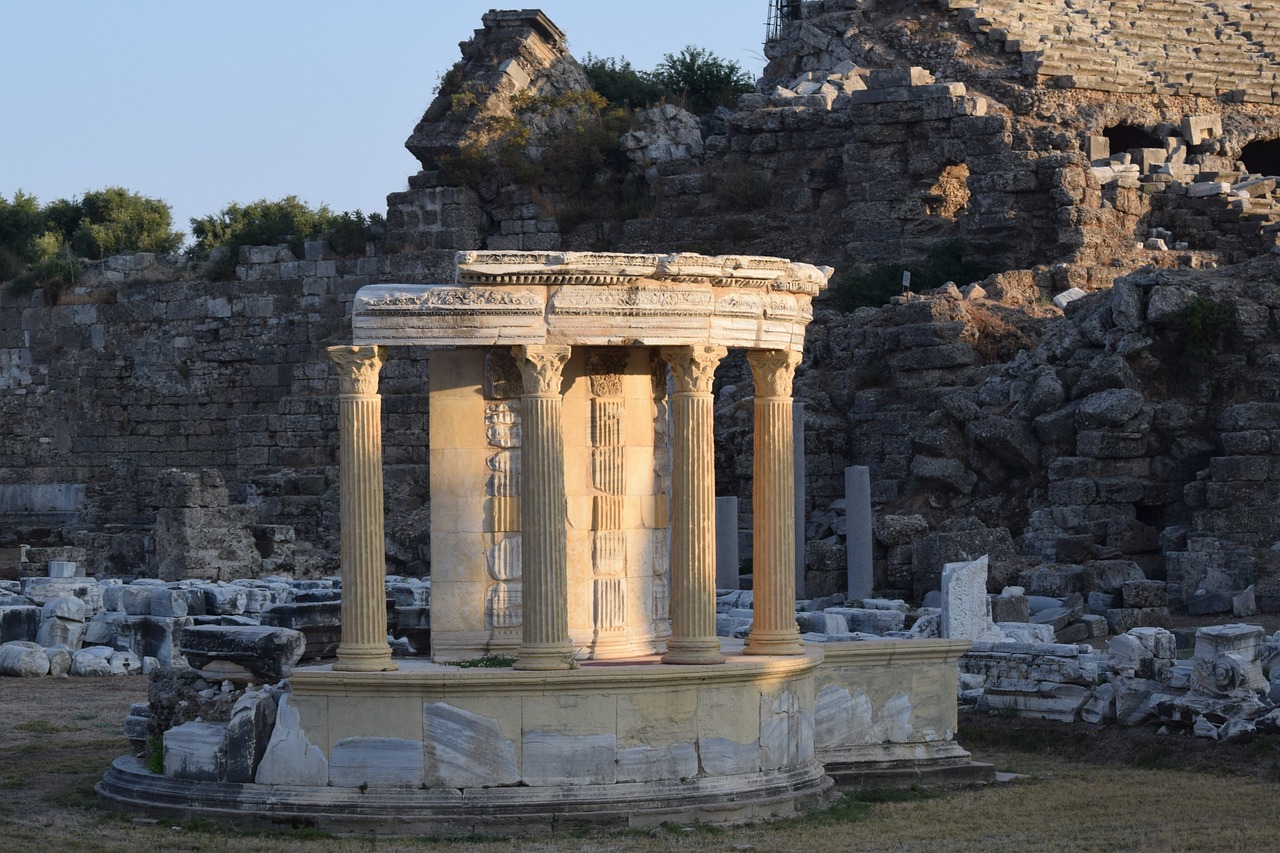
Innovations in Staging and Performance
Ancient Greek theatre was not only groundbreaking in terms of storytelling and character development but also in its innovative staging and performance techniques. One of the most significant innovations was the use of the skene, a building behind the stage that served as a backdrop and a dressing room for actors. This architectural element allowed for quick scene changes and added depth to the stage, enhancing the overall visual experience for the audience.
Furthermore, the theatron, the seating area for the audience, was carefully designed to optimize acoustics and visibility. The semi-circular arrangement of seats ensured that everyone could hear and see the actors clearly, creating an immersive and engaging theatrical experience. This attention to audience comfort and experience set a precedent for modern theatre design and layout.
Ancient Greek theatre also introduced the concept of the deus ex machina, a crane-like device used to lower actors playing gods onto the stage. This technique allowed for supernatural elements to be incorporated into the performance, adding a sense of spectacle and wonder to the production. While the deus ex machina is less commonly used in contemporary theatre, its influence can still be seen in the use of special effects and elaborate staging in modern productions.
Frequently Asked Questions
- What is the significance of ancient Greek theatre in modern drama?
Ancient Greek theatre has had a profound influence on modern drama by introducing themes, storytelling techniques, and character development that continue to shape contemporary theatrical productions. The enduring impact of Greek theatre can be seen in the use of dramatic structure, character archetypes, and moral dilemmas in today's plays and films.
- How did ancient Greek tragedy influence modern tragic plays?
Ancient Greek tragedy, with its elements like the chorus, tragic flaws, and catharsis, has served as a foundation for modern tragic plays. The themes of fate, hubris, and justice explored in Greek tragedies have transcended time and are still prevalent in tragic stories told on stage and screen today.
- What comedic devices from ancient Greek comedy are still used in modern comedic styles?
Ancient Greek comedy introduced comedic devices such as satire, farce, and mistaken identity, which have evolved into modern comedic styles and conventions. The use of humor, social commentary, and absurd situations in Greek comedy continues to influence the comedic storytelling of today.
- Why are theatrical masks and the chorus significant in ancient Greek theatre?
Theatrical masks were used in ancient Greek theatre for character portrayal and emotional expression, while the chorus served to convey themes and interact with the audience. These elements added depth and symbolism to the performances, influencing how characters and emotions are portrayed on stage in modern theatre.








